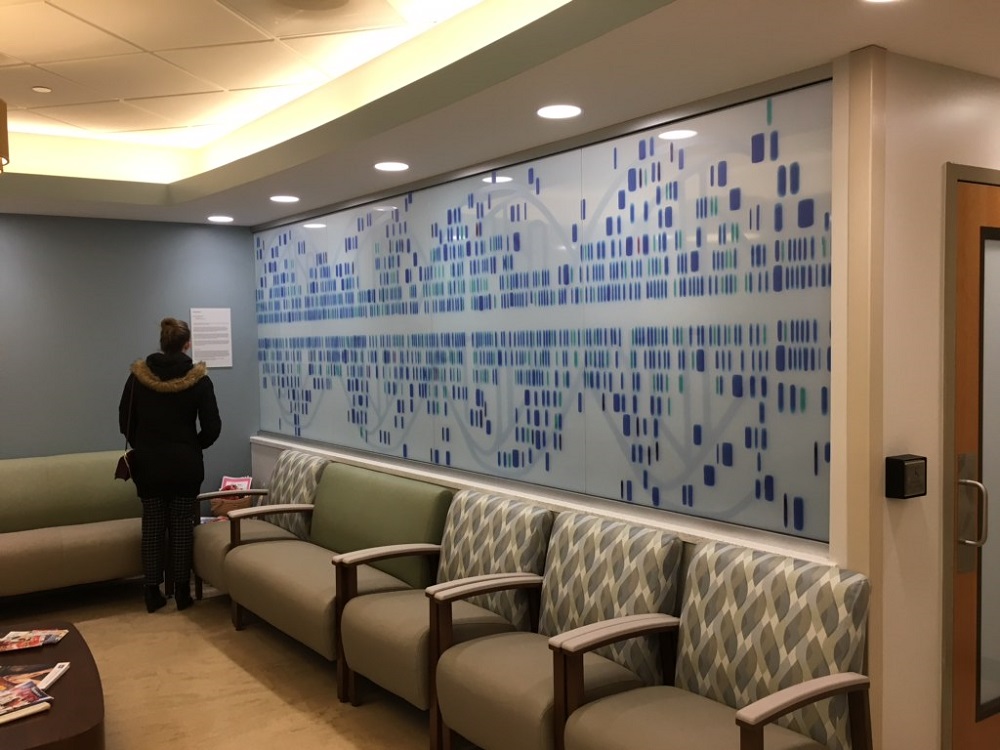Chromosome 2, Genes Controlling Our Proteins
12’ long x 60” window with encased colored gel of Chromosome 2
Commissioned permanent installation designed for the front lobby and waiting room window of the new Dorothy McCormack Center. Building design by Grove & Dall’Olio Architects.
“I live my life in widening circles
that reach out across the world.”
Rainer Maria Rilke,
“Widening Circles,” Book of Hours 1-2
Our genes are the blueprint of what makes us who we are. They connect us to all those who have come before us and all those yet to be born.
Our genes are held on our chromosome inside each of our 50-100 trillion cells in our bodies. Humans normally have 46 chromosomes in each cell, divided into 23 pairs. Two copies of each chromosome, one copy inherited from each parent, form one of the pairs.[1] Chromosome 2 is the second largest human chromosome, spanning about 243 million building blocks of DNA (base pairs) and representing almost 8 percent of the total DNA in cells.
Chromosome 2 likely contains 1,200 to 1,300 genes that provide instructions for making proteins. These proteins perform a variety of different roles in the body. Essentially, proteins are the software that tells our DNA hardware what to do. They have an enormous range of crucial functions in an organism. Proteins build, regulate and maintain the body. For instance, they build bones, enable muscles to move, control digestion, and keep the heart beating.
Changes in Chromosome 2 have been identified in several types of cancer. These genetic changes are somatic, which means they are acquired during a person's lifetime and are present only in cells that give rise to the cancer. To date, 140 types of cancer have been associated with the translocations that occur on Chromosome 2.[2] The understanding of somatic cancers and Chromosome 2 is an important and growing area of research.[3]
[1] US National Library of Medicine
[2] Cancer Genetics
[3] American Association of Cancer Research




